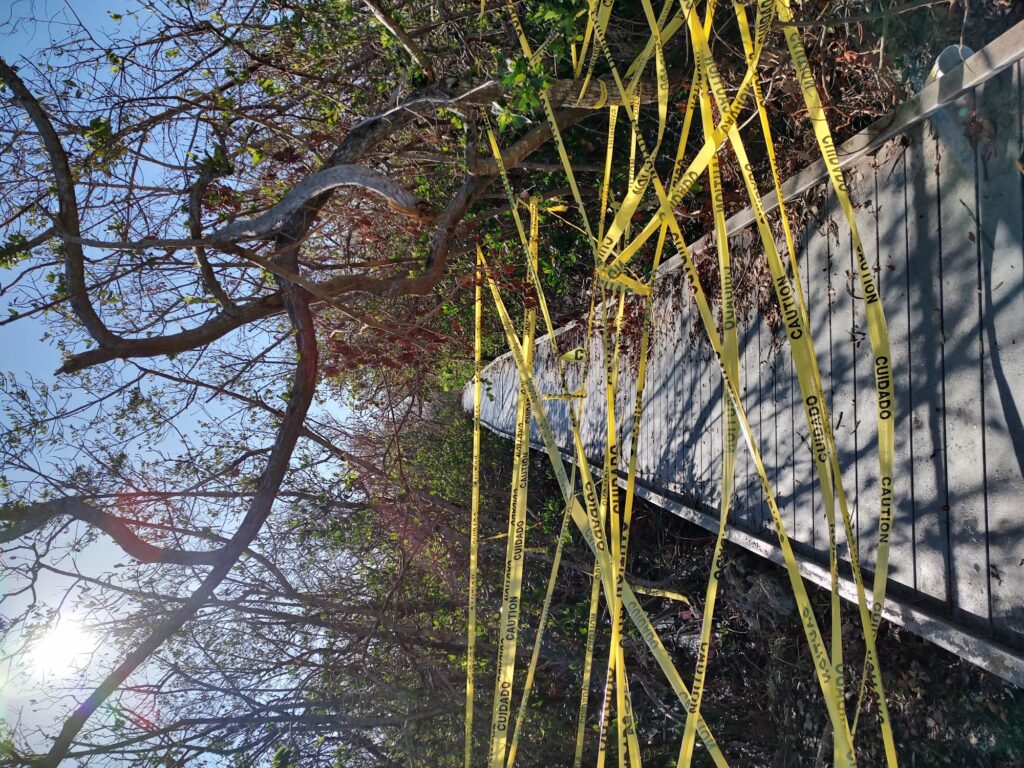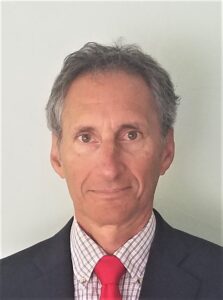By Joseph Bonasia, Florida Rights of Nature Network
I live in Cape Coral in Southwest Florida and many residents call it “Paradise.” My favorite place in the Cape is the popular Glover Bight boardwalk trail that leads through a mangrove wetland to the quiet, peaceful bight on the Caloosahatchee River.
Because of Hurricane Ian, the trail is closed to the public, its entrance blocked by streams of yellow police tape.
Cape Coral was hit hard by the storm. Its surge flooded my home with a foot of grossly polluted Category 3 water and upended my daily life (which usually revolves around advocating a constitutional right to clean water for all Floridians). Friends fared far worse, and some were left traumatized.

“All of us have lost places that we love,” Tamara Pigott, executive director of the Lee County Visitor and Convention Bureau recently wrote in “Recovery is Coming.” “But plants and trees will grow back. Wildlife will again thrive. Nature will help us heal.”
She’s right. Among many other examples, the therapeutic benefits of a walk in the woods are well documented, and Floridians intuitively know what a study of 18,000people revealed: exposure to blue spaces, such as springs, rivers, lakes, and beaches, is good for our mental health.
Nature will help us heal because it is likely humans have an innate love of nature. Scientists call this “biophilia,” literally “love of life,” and research strongly suggests that we need and benefit from an intimate relationship to the natural world. It is vital to our emotional, cognitive, and spiritual well-being.

In the aftermath of Ian, however, this too is critical to our well-being: Will we help heal nature?
Fossil fuels didn’t create Ian, just as they did not create Irma, Michael, Fiona, Florence, Maria, Harvey, or Katrina. But because of greenhouse gas emissions, we bear culpability for the warming waters and rising seas that made these storms particularly destructive. Hurricanes happen, but Ian didn’t have to be this bad. We made it so.
“Human activities inflict harsh and often irreversible damage on the environment,” the Union of Concerned Scientists wrote back in 1992 in their Warning to Humanity. “If not checked many of our current practices put at serious risk the future that we wish for human society and the plant and animal kingdoms.”
That future is here because as a society we didn’t heed that warning nor countless others. We didn’t put a price on carbon, cut subsidies to the fossil fuel industry, or pursue clean renewable energies as aggressively as we should have.
Among other forces, corporate deceit, political corruption and ideologies, culture wars, and plain old greed, all contributed to the lack of meaningful climate action. We continued to take nature for granted and hurt that which we love.
Florida is a microcosm of the same forces. Look what has been done to the blue spaces that will help heal us: the most acres of polluted lake water in the nation; 9,000 miles of rivers and streams contaminated with fecal bacteria; 80% of our 1,000 springs impaired; blue-green algae blooms and red tides a constant threat; 9.3 million acres of wetlands gone.
When in 2020, 89% of Orange County voters passed their historic Right to Clean Water / Rights of Nature Charter Amendment, the state Legislature acted on behalf of special interests and preempted the law. Consequently, developers will reap more profits in Orange County, but precious acres of wetlands, which sequester carbon, help mitigate flooding, and provide storm protection and vital wildlife habitat, will be lost. (In Cape Coral, wetlands next to the Glover Bight trail are being eyed for development. It never ends.)
Plants and trees in wetlands will not grow back once wetlands are destroyed. Florida’s vanishing seagrass beds will not grow back in waters the state has allowed to be polluted, and the wildlife we cherish that subsist upon the seagrass, such as manatees, will not again thrive.
As a society, we are exploitive, abusive lovers of the natural world.
The aftermath of Ian begs us to change how we live in relation to a natural world that provides us so much more than material good, but which has a finite ability to absorb the injuries we inflict upon it as the escalating ferocity of storms and our troubled waters demonstrate.
Our relationship with nature cannot be a one-way affair in which we ceaselessly take from and cause harm to the natural world while disregarding its needs, laws, and limitations.
Green amendments help correct our hurtful relationship with the natural world by providing citizens with explicit, constitutional rights to clean air, clean water, and a healthy environment. With these rights, we can in turn provide nature with the protections that it needs from the corporate deceit, political corruption, greed and other forces that threaten it.
A “Right to Clean and Healthy Waters” amendment (see FloridaRightToCleanWater.org), if approved by voters in 2024, would embed this fundamental right in the state constitution. With this right we can save our wetlands from otherwise ceaseless development. We can stop pollution at the source so wildlife can again thrive. We can restore the health of ecosystems.
Nature will help us heal, but we must help nature heal in return for its sake and ours.
Joseph Bonasia is Chair of Florida Rights of Nature Network and Citizens’ Climate Lobby’s volunteer liaison to Sen. Rick Scott’s office.
“The Invading Sea” is the opinion arm of the Florida Climate Reporting Network, a collaborative of news organizations across the state focusing on the threats posed by the warming climate.



